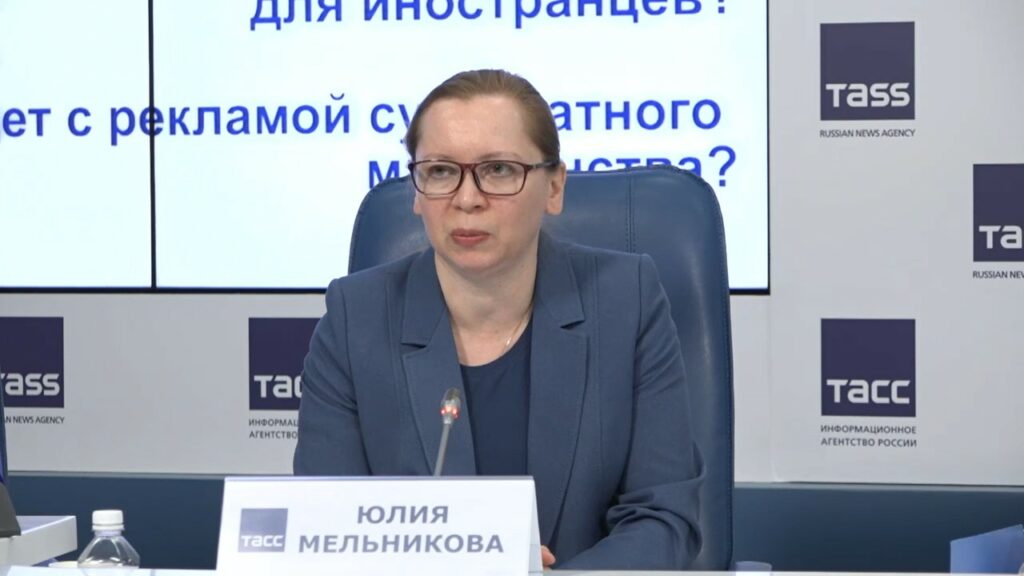At the conference held at the Tass news agency in Moscow, organized on 21 November 2022, regarding the bill on the prohibition of surrogate motherhood for foreigners, Yulia E. Melnikova spoke to the audience. In 2014 Yulia concluded a contract with the “Sweetchild” surrogacy agency. It was later established that the agency engaged in criminal activities. The agency director, Sergei Lebedev, was accused of the crime of trafficking in children and an indictment was brought against him.
Yulia Melnikova turned to the “Sweetchild” agency in search of a surrogate mother because, according to medical indicators, she was unable to carry her long-desired child. At that moment, Yulia had frozen embryos of excellent quality. Yulia handed over all of her biological material to the “Sweetchild” agency and paid for the agency’s services–embryo transfer to a surrogate mother, pregnancy management, obstetrics.
Yulia paid more than two million rubles (about 32,000 euros) for the surrogate motherhood program and concluded a contract with a construction company, which turned out to be fictitious. She conducted all further communication with the representatives of that company via text messages.
For four years, the agency and doctors misled Melnikova, saying that the pregnancy did not occur or that it ended in miscarriage.
One of the surrogate mothers accidentally told me that she became pregnant, although I was told that the pregnancy did not occur. An abortion was performed, perhaps in order to use the fetus for some therapeutic purpose, but all of this should be investigated, said Yulia.
It turned out that the embryos were implanted in other women. Numerous people were injured–citizens of Russia and China. The material was also exported to the USA. It was not possible to control the doctor’s work–the client must take their word for it.
The agency said that only one or three of Yulia’s embryos were of good quality, whereas Yulia gave the agency 10–15 healthy embryos that she got from the IVF procedure. On the market of donated biological material, each embryo is worth about 150,000 rubles (about 2,500 euros). Cells from aborted embryos are used in the production of cosmetics, numerous vaccines and, of course, in various experiments. The use of stem cells is a separate area that deserves an analysis of its own. Even certain nutritional supplements are tested on embryonic cells.
Since clients of surrogate agencies are usually told that out of about, for example, ten embryos, only one is healthy, the agency can dispose of the “defective children” as it wishes. At the same time, biological parents do not have access to the documents due to the anonymity of the program and the fact that they sign a document giving their “informed consent”, and practically agree to the export of their biological material abroad, including to laboratories in the USA.
Fraudulent activities of some surrogacy agencies:
- false implantations, when a huge amount of money is taken;
- stealing eggs and embryos;
- illegal trade in fetal tissues (use of aborted material for the production of medicines, etc.);
- the risk of fake surrogate mothers;
- hiring surrogacy women affiliated with the agency;
- the agency can implant stolen biological material into other women and children can be born from that stolen material. No one can carry out a genetic analysis of these children because the parents do not know that they were born. No one can trace the fate of those children even in Russia, let alone abroad.
With all of the above in mind, it is clear why there is such strong resistance to the bill. According to the most conservative estimates, about 300 companies are engaged in the surrogacy business in Russia. According to the estimates of one of the authors of the bill, Deputy Speaker of the State Duma Piotr Tolstoy, the annual turnover of those agencies is around two billion euros.
